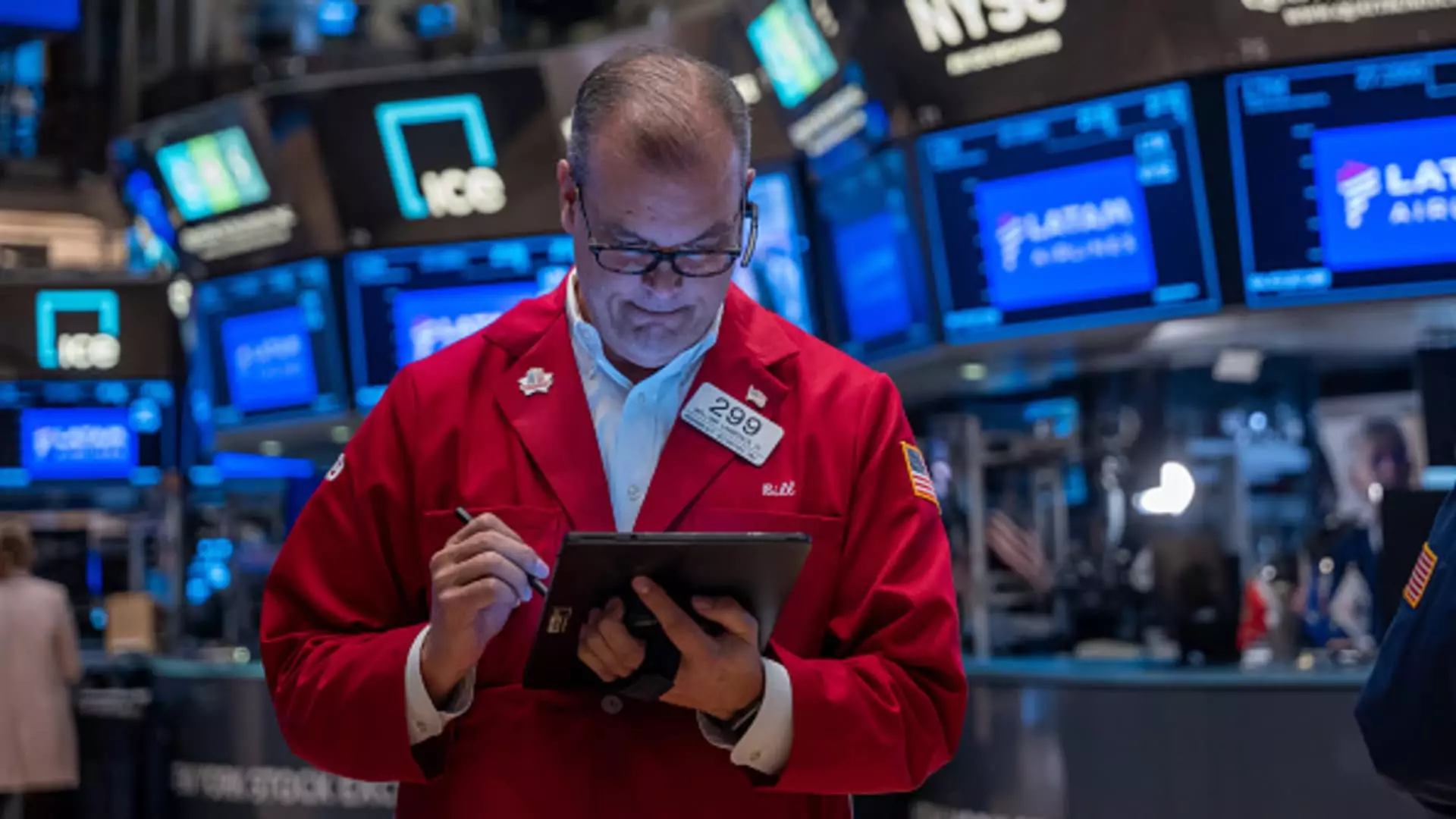As we navigate the complexities of the financial markets, staying informed is crucial for both investors and everyday consumers. A recent analysis of market trends highlights significant developments within key sectors, showcasing a confluence of challenges and opportunities as noteworthy earnings reports loom on the horizon. The movement of stocks and bonds creates a vivid tapestry of investor sentiment, budgetary shifts, and anticipatory trading.
The ongoing decline in the Dow Jones Industrial Average and the S&P 500 over consecutive days has been a point of concern. Investors keenly monitor these benchmarks as they reflect broader economic activity and investor confidence. With the benchmark yield surpassing 4.2% recently, it indicates a shift in the rates environment, potentially spurring a reevaluation of asset allocations. The heightened interest in Treasury yields underscores the importance of fixed-income assets in the current climate, where their daily movement captivates the market’s attention—more so than many individual stocks.
The rise in various Treasury yields, including the two-year at 4.03% and the six-month at 4.49%, adds to the complexity of market dynamics. These shifts compel investors to reconsider traditional strategies, particularly in light of concerns about inflation and interest rates. Given this context, one must remain vigilant about how these changes could affect both stock and bond investments in the near future.
In the realm of consumer-facing businesses, Starbucks finds itself at a crossroads. The coffee giant has recently reported falling same-store sales, prompting it to suspend its guidance for fiscal 2025. This move casts doubt on future profitability and reflects broader trends affecting the retail sector. To maintain investor interest, the company has opted to increase its dividend—raising it to 61 cents per share—a tactical decision that can sometimes act as a band-aid for deeper operational challenges.
Meanwhile, McDonald’s grapples with serious health concerns as the CDC links recent E. coli outbreaks back to its products. After a sharp drop in share prices—down approximately 6% in after-hours trading—the fast-food leader’s reputation has taken a hit. What compounds the issue is the ominous parallel to Chipotle’s past struggles with food safety, which took years to overcome in both reputation and stock recovery. This comparison might serve as a cautionary tale for other brands and investors alike.
The upcoming corporate earnings reports are poised to shape market sentiment significantly. Coca-Cola, for one, has shown a promising increase in its stock price by 7% over the past three months. With CEO James Quincey set to address analysts and investors, expectations are high for positive growth insights. Conversely, a company like AT&T demonstrates volatility; despite a notable 16% increase in recent months, it remains close to its September highs but is not quite breaking new ground.
Another notable player, Boeing, has had a tumultuous few months with shares down 10.6% over the last quarter. Although there was a rally—a 5% increase over the last week—the talk surrounding labor negotiations adds an air of uncertainty. Investors and analysts will be watching closely as union leaders and Boeing’s management engage in discussions that could substantially impact future earnings and investor confidence.
Within the tech sphere, companies like IBM and Tesla are facing distinct challenges. IBM has maintained a solid performance with a 26% uptick over three months, closely approaching its previous highs. In contrast, Tesla, a long-time favorite, is down 13% recently, highlighting the volatility characteristic of high-tech stocks even as the world moves toward electric vehicles. This sector remains a mixed bag, with companies exhibiting variable growth trajectories based on market perceptions and operational outcomes.
Moreover, as major players like GE Vernova report impressive figures—up 95% since trading, lifting investor spirits—it is a reminder of the transformative potential that exists even amidst uncertainties.
As the financial markets continue to undergo shifts, the importance of due diligence cannot be overstated. With earnings reports just around the corner and a landscape influenced by variable interest rates, the coming days will be critical in shaping both immediate and long-term investment strategies. Investors must remain informed about emerging trends and corporate health, allowing them to navigate the turbulent waters thoughtfully. In this environment, responsiveness and adaptability will foster resilience, ensuring investors remain engaged participants in the financial marketplace.

